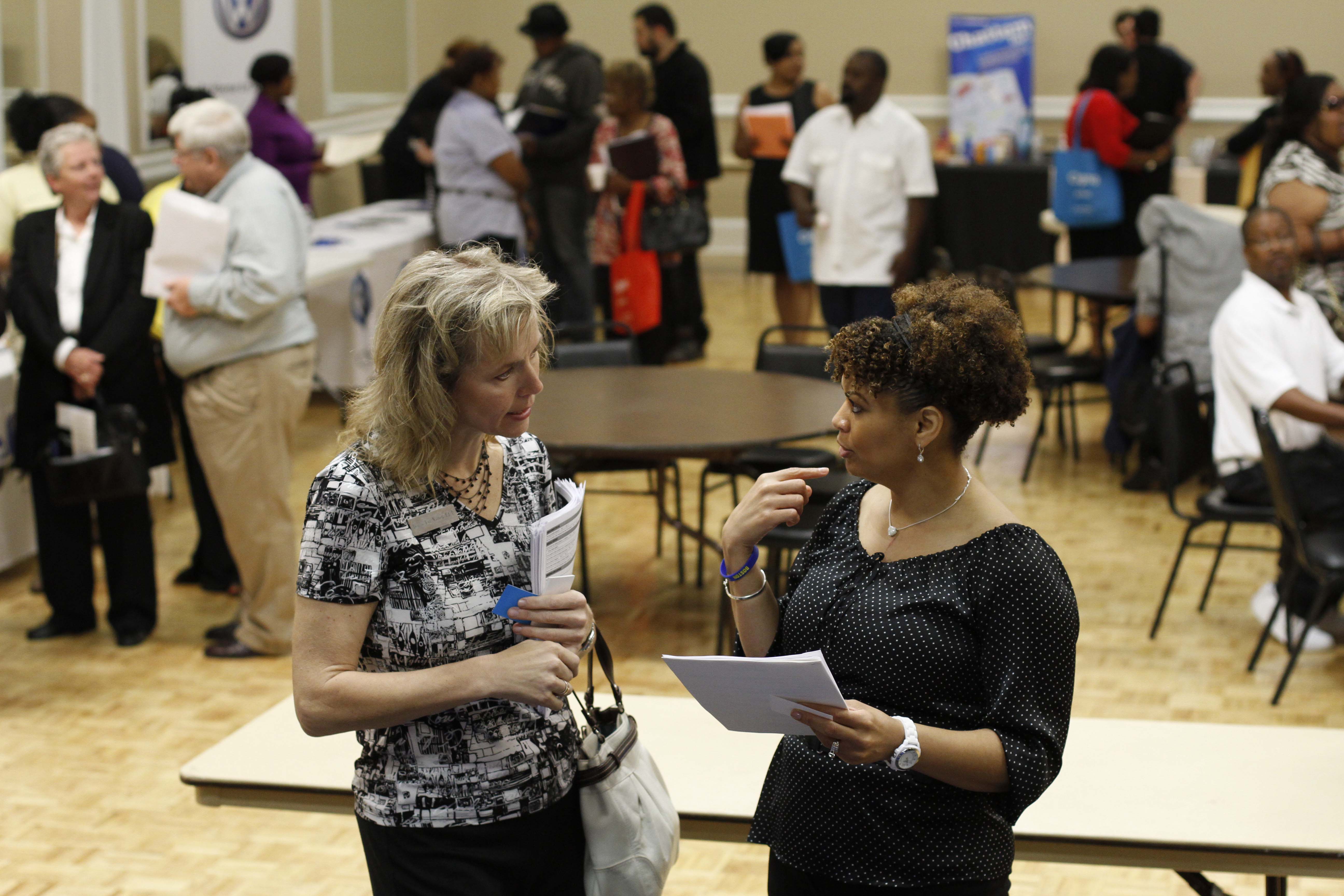In gray pants and a black shirt, toting a folder, Shemique Branch meandered from booth to booth at the Urban League of Greater Chattanooga's jobs fair Tuesday, shaking hands and accepting business cards. She was just another face in the crowd, except for this: she's not unemployed.
Unlike the many job seekers at the event who'd been out of work for a month, six months or a year, Branch already has a job. But it's part time. And it's a night shift. She wants to put her year-old bachelor's degree from a Nashville university to better use.
"I gave myself three years in Chattanooga to spend time with my family and be home," she said. "Then I'll leave again."
Branch is part of a growing number of young workers who are spending less time in each job and are changing the way companies look at employee retention, loyalty and recruiting.
"The day and age of cradle-to-grave employment is probably gone," said Vince DiCecco, president and CEO of Your Personal Business Trainer, a Kennesaw, Ga., business coaching service.
On average, workers hold more than three jobs between ages 22 and 25, according to the U.S. Bureau of Labor Statistics. That number doubles to just over six jobs when the survey looks at workers between ages 18 and 25.
"Companies haven't shown loyalty to their workforce and, consequently, employees don't feel the need to show loyalty to their employers -- unless there are growth opportunities, significant benefits, or an opportunity to learn and grow as individuals," DiCecco said.
More than half of workers between ages 18 and 25 spend less than one year in the same job, according to the Bureau of Labor Statistics. And only 12 percent of the survey's respondents stayed in the same job for more than two years.
It's a trend that Patricia Wilson, a talent acquisition recruiter at Shaw Industries, has seen first-hand. Sitting behind her table at the Urban League's jobs fair on Tuesday -- which included 23 employers and about 250 job seekers -- Wilson said the difference in today's candidates is almost palpable.
"As a recruiter, I had to shift what I'm looking for in a candidate," she said. "Six years ago, candidates would come through with longevity in their previous work experience. Now, candidates often have less than six months experience. Or applicants may have worked four or five jobs in the last year."
These days, she hires more people with little or no experience. And she hires more people who are still employed elsewhere.
"It's Generation Y," she said. "They're looking for the next position that can offer the best pay. That's what I see on the most applications as a reason for leaving."
One way companies can help increase employee loyalty is to increase on-the-job training and development, DiCecco said, something many companies cut back on during the recession.
"If they go back to training their people, the risk they run is that the employees take this newfound skill set and go market themselves elsewhere," he said. "But if they continue to train me, I'm going to be happier and more productive and I'll stay here even if there is more money elsewhere."
The bottom line, he said, is that companies need to make a conscious effort to retain employees.
"Employees want to work with a company they like, they trust and find working there to be enjoyable," he said. "Businesses need to have a strategic plan. Trying to lure or find a good employee is the same approach a business should take to find customers."


